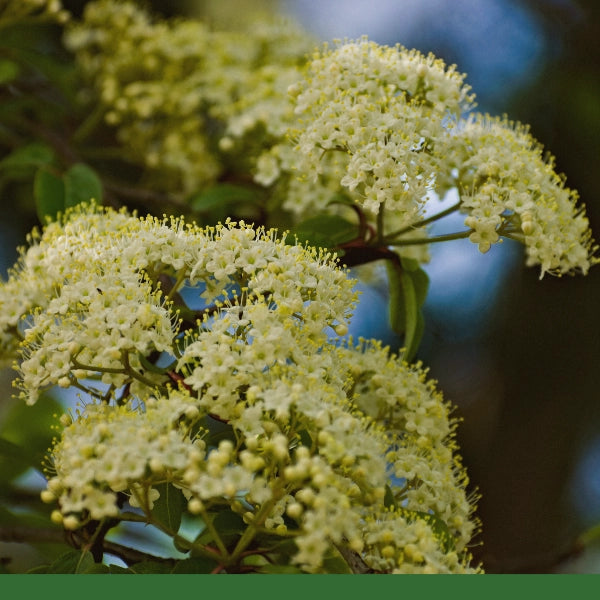Black Haw Bark, Cut & Sifted (Viburnum prunifolium) - Dried Herb, Wildcrafted
- Regular price
- $38.98
- Sale price
- $38.98
- Regular price
-
- Unit price
- per
Couldn't load pickup availability


Black Haw is a shrub or small tree with serrated oval leaves. Its white flowers and dark berries occur in clusters. The stem bark of Black Haw is approved for use in foods in the United States. It is native to the woodlands of temperate and subtropical parts of North America, Europe and Asia.
Its other names are Stag-Bush and American Sloe. Black Haw belongs to the same genus as the guelder rose Viburnum opulus, which is also known as Cramp Bark . The two are sometimes used interchangeably and have similar properties, but Black Haw is more specific in its effects on the uterus.
The actions of Black Haw by traditional herbalist are described as antispasmodic, sedative, astringent, muscle relaxant, cardiotonic, uterine relaxant and anti-inflammatory. Indigenous people used a decoction of Black Haw to treat gynaecological conditions, including menstrual cramps, aiding recovery after childbirth and in treating the effects of menopause.
Properties:
The energetics and taste of Black Haw are astringent, bitter, cool and dry. Black Haw has an affinity towards the Reproductive system, cardiovascular system, musculoskeletal system and kidneys.
Combine Black Haw with Raspberry Leaf, Lady's Mantle or Motherwort as a uterine tonic. As a heart tonic combine Black Haw with Hawthorn, Rose or Hibiscus Flowers.
How to use:
1 teaspoon of Black Haw Root Bark to one cup of boiling water. Simmer for 15 minutes, strain and drink up to three cups a day.
Cautions & contraindications:
Due to the salacin content, Black Haw should not be used by people who are allergic or have a sensitivity to aspirin. Black Haw should be used with caution in people with kidney stones as it contains oxalic acid.
This information is for educational purposes only and is not intended to diagnose, treat or cure any disease or illness. Please consult your healthcare provider prior to the use of this product if you are pregnant, nursing, taking medications or have a medical condition. Individual results may vary.

